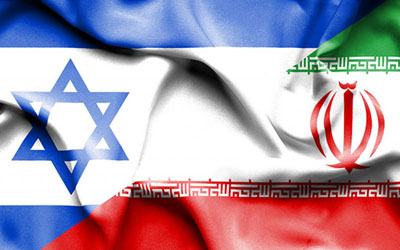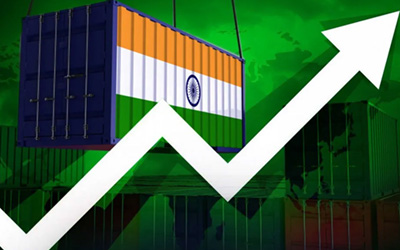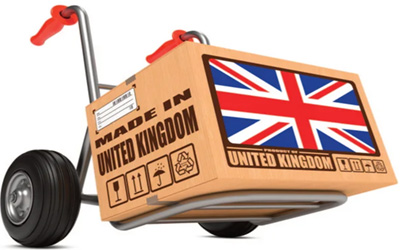5 Impacts ISRAEL HAMAS CONFLICT Has In The Logistics Industry.
The ongoing war between Israel and Palestine, which started on October 8, 2023, has not only caused human suffering and political instability, but also disrupted the logistics industry in the region and beyond. The Israel Hamas conflict has affected various modes of transportation, such as air, sea, and land, as well as the supply chains of several sectors, such as electronics, defence, healthcare, and agriculture.
The Impact on Air Freight
One of the most immediate impacts of the war was the suspension of flights to and from Israel by major carriers, such as FedEx, UPS, and DHL. These companies cited security concerns and operational challenges are the reasons for their decision.
The Tel Aviv airport, which is the main gateway for air cargo in Israel, has been subjected to rocket attacks and air strikes by both sides. According to the International Air Transport Association (IATA), Israel’s air cargo market is worth about $900 million annually. The suspension of flights has affected the delivery of essential goods, such as medical supplies, vaccines, and perishable products.
Sea Freight
Another mode of transportation that has been affected by the Israel Hamas conflict is sea freight. Israel’s ports, especially the Port of Ashdod and the Port of Haifa, have been targeted by rockets and missiles from Gaza and Lebanon. This has caused delays and congestion in the maritime operations, as well as increased security measures and costs.
According to S&P Global Market Intelligence Israel’s about 3.6 million twenty-foot equivalent units (TEUs) of containerized cargo in 2022. The disruption of sea freight has impacted the import and export of various commodities, such as oil, gas, chemicals, metals, machinery and textiles.
Road Freight
 The Israel Hamas conflict has also affected land freight in several ways:
The Israel Hamas conflict has also affected land freight in several ways:
1, The border crossings between Israel and its neighbouring countries, such as Egypt, Jordan, Lebanon, and Syria, have been closed or restricted due to security reasons. This has hampered the movement of trucks and trailers across the region.
2, The internal road network in Israel and Palestine has been damaged by bombings and blockades. This has increased the travel time and risk for drivers and vehicles.
3, The fuel supply in both countries has been disrupted by attacks on pipelines and refineries. This has raised the fuel prices and reduced the availability of diesel and gasoline.
Supply Chains
The Israel Hamas conflict has caused the disruption of transportation modes has also affected the supply chains of several sectors that rely on production or consumption. One of these sectors is electronics. Israel is a major supplier of computer processors, aerospace equipment, and telecom equipment to the ELI and other markets.
The Israel-Hamas Conflict has disrupted the production and delivery of these products, which could affect the global demand and supply balance. Another sector is defence. Israel is a leading exporter of military equipment and technology to countries such as India, Azerbaijan, Singapore, and Colombia. The war has increased the demand for these products from Israel’s allies but also reduced its capacity to fulfil them.
A third sector is healthcare. Israel is a significant producer and consumer of pharmaceuticals and medical devices. The Israel Hamas conflict has affected the availability and quality of these products in both domestic and foreign markets.
Conclusion
The war between Israel and Palestine has had a negative impact on the logistics industry in various ways. It has disrupted the transportation modes of air, sea, and land freight; it has affected the supply chains of several sectors such as electronics, defense, and healthcare; it has increased the costs and risks for logistics providers and customers.
The extent of these impacts will depend on how long the Israel Hamas conflict lasts and how much it escalates. The logistics industry will need to adapt to these challenges by finding alternative routes, sources, and markets; by enhancing security measures; by collaborating with stakeholders; and by supporting humanitarian efforts.

War has no place in this world but history tells us that it is a fact of human greed either for land, money or religious believes, we all prey for peace on earth but until we can find a way to live in harmony there will always be conflicts.
Within the world of logistics, freight forwarding, we have to solve problems on a daily basis which makes us very resourceful and competent within our industry, managing to get things delivered on time regardless of what is going on in the world is an art within itself.
The Israel-Hamas Conflict is proof to why it is imperative and proactive to use a good freight forwarding company to help your business grow and get your products to your customers without delay making good business for all involved SARR Logistics UK can do just, help your business grow and keep it moving even when war is looming we are resilient and always deliver.
With a legacy built on trust, backed by extensive experience, a global network, and a customer centric approach, SARR Logistics UK emerges as the ultimate partner for all your supply chain mapping needs. We are in touch with the latest cloud based systems to keep us well informed of all the latest news.
If you would like to know more reach out to us today and experience a seamless, efficient, and dependable shipping solution tailored to elevate your business. For further inquiries and to explore how SARR Logistics UK can help you save money contact our team. We are always happy to help.![]()








